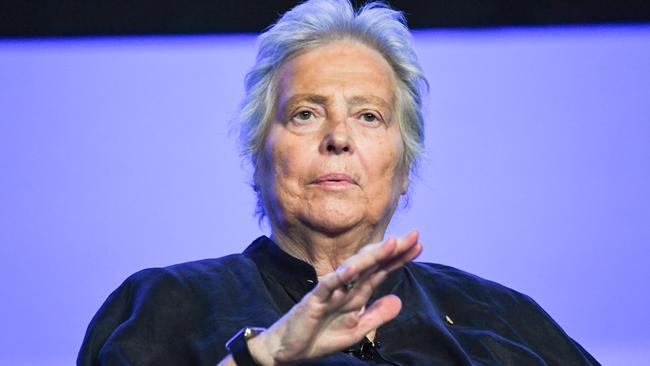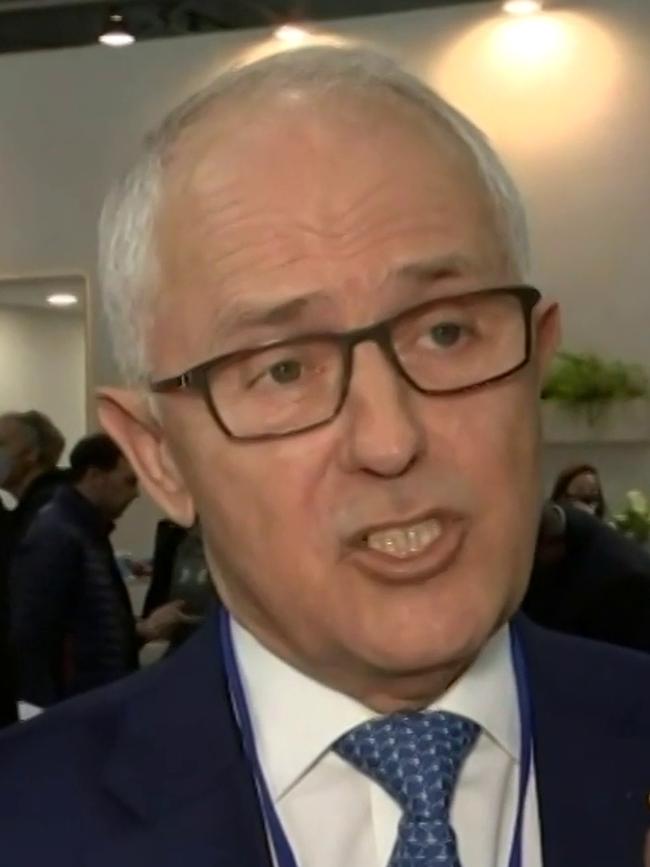Kerry Schott replaces dumped Malcolm Turnbull as NSW Net Zero chair
Kerry Schott will chair NSW’s Net Zero Emissions and Clean Economy Board after Malcolm Turnbull was dumped in April.

Kerry Schott, hired by Malcolm Turnbull to head up the Energy Security Board, has replaced the former prime minister as NSW’s net-zero emissions chief after he was dumped in April from the same role amid internal acrimony within the Coalition.
NSW Energy and Environment Minister Matt Kean said Ms Schott, who stepped down from the top energy body in October, will lead a high-profile board advising the state government on implementing its climate change plan to achieve 50 per cent emissions reduction by 2030 and net zero by 2050.
“The board brings a weight of expertise to identify opportunities for NSW in new low emissions technologies and industries to ensure NSW decarbonises in a way that grows the economy and creates jobs,” Mr Kean said.
The eight-day reign of Mr Turnbull as inaugural chairman of the state’s Net Zero Emissions and Clean Economy Board ended in recriminations all round: former Deputy Premier John Barilaro said the ex-Prime Minister “owns this shitshow”; Mr Turnbull said it was caused by media “thuggery”; while Mr Kean blamed himself.

A high-profile set of business and policy heavyweights will join Ms Schott as the state seeks to become a renewable super-power with board members including Macquarie chairman Peter Warne, Foreign Investment Review Board member Margaret McDonald and former Prime Minister and Cabinet secretary Martin Parkinson.
NSW Chief Scientist High Durrant-Whyte will be deputy chair alongside Ms Schott while non-executive director and Beyond Zero Emissions adviser Katerina Kimmorley will also join the board along with Judy Slatyer from the Climate Leaders Coalition, also a member of PwC Australia’s climate advisory group.
Mr Kean said the board’s role includes providing advice on the design of net zero programs, identifying options for low emissions research and industries in NSW and strategies to support existing industries to adopt low or zero greenhouse gas emissions technologies.
The ESB was created by the former Turnbull government to push through the National Energy Guarantee, which was subsequently abandoned. The Guarantee had become emblematic of internal divisions within the Coalition and ultimately provided the trigger for the spill that elevated Scott Morrison into the top job.
Ms Schott remained chair for several years, however, and has repeatedly warned Australia’s coal plants face being forced out of the power grid more than a decade early by the mid 2030s amid a fast growing transition to renewables.
Mr Kean has also been clear that the fossil fuel could be tipped out of the electricity market earlier than planned with their owners under financial pressure and solar increasingly undercutting the fossil fuel’s profitability.
The NSW minister has been an outspoken critic of the Morrison government’s climate change ambitions and is pushing ahead with a renewables blueprint to transform the state’s electricity network to one that is expected to be cheaper and carbon-friendly.
Coalition figures said backbench pressure to reconsider Mr Turnbull’s appointment began the moment news of his new position was leaked to radio on March 29 but intensified after he told media two days later that approvals for new coal mines were “out of control”.
Mr Barilaro had accused Mr Turnbull of “severely misinterpreting his role” as chairman.
According to the Australian Energy Market Operator, NSW requires up to three gigawatts of energy storage by mid-2030, by which time a number of coal-fired power stations will have closed.
Four of the five existing coal-fired power stations in NSW are due to expire within 15 years, beginning with the Liddell Power Station in Muswellbrook, in northern NSW, in 2022-2023. They provide 75 per cent of the state’s supply.


To join the conversation, please log in. Don't have an account? Register
Join the conversation, you are commenting as Logout